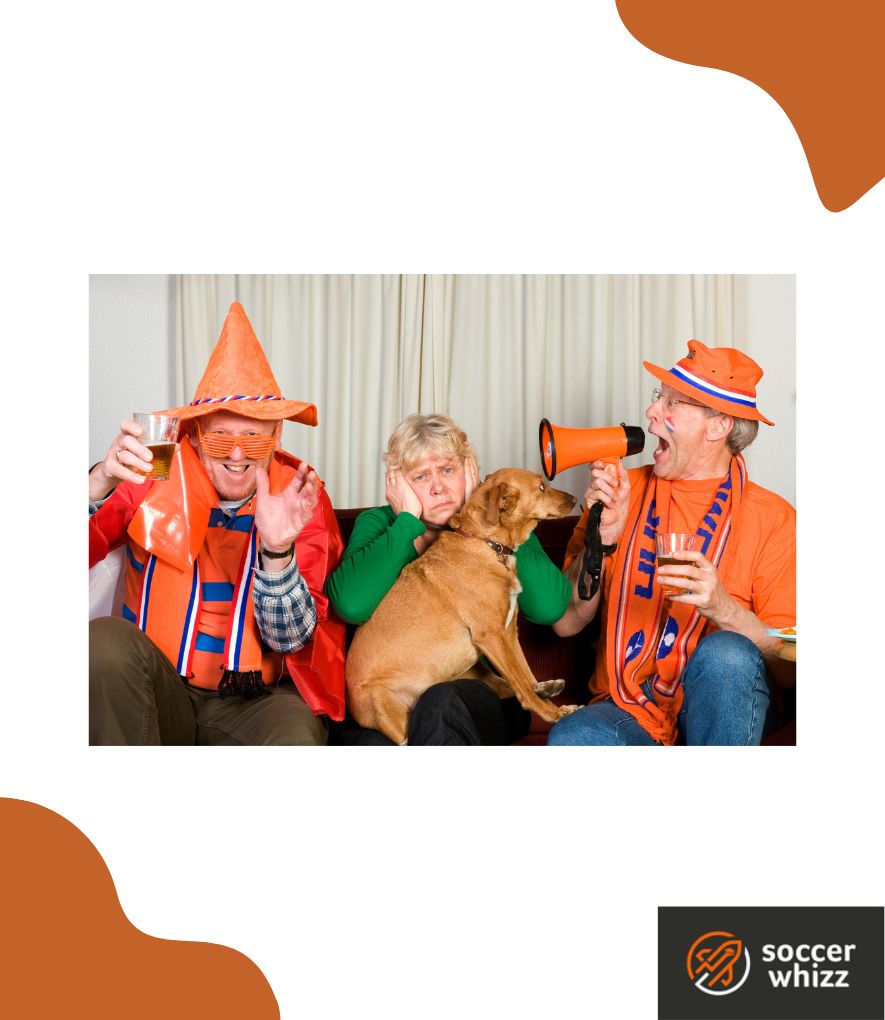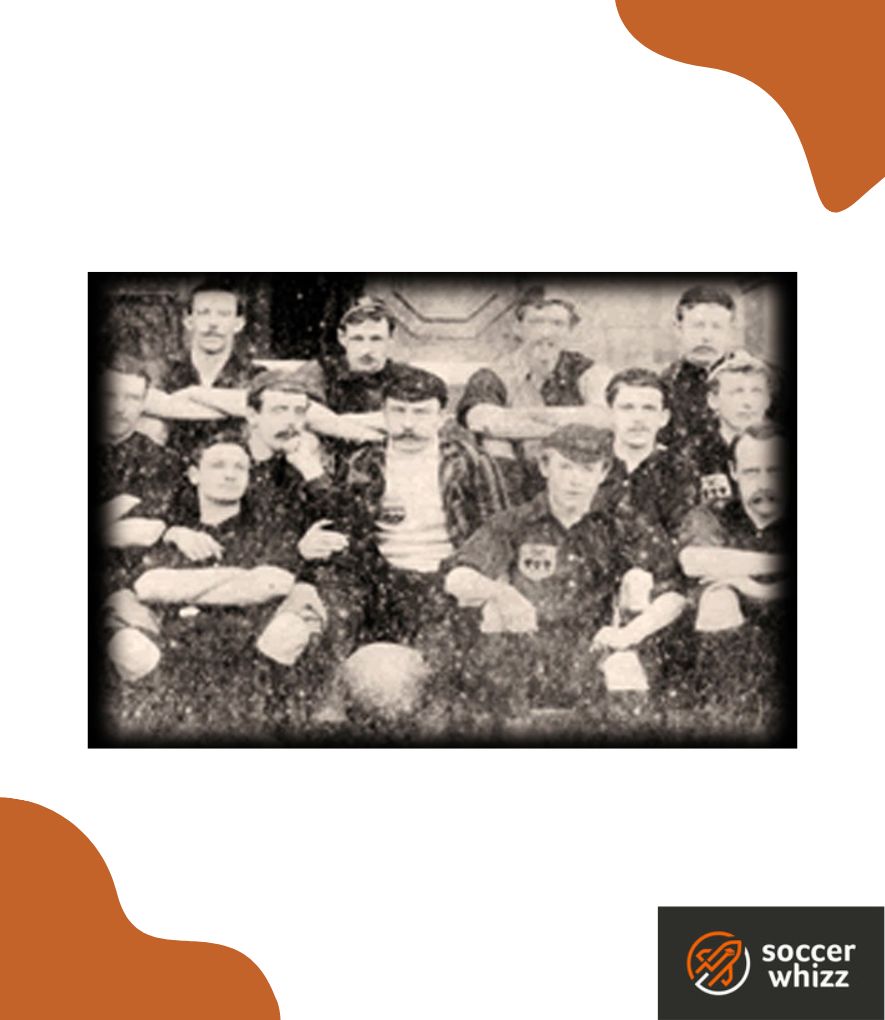The intensity, the passion, and the rivalry that fuel the world of soccer reach their pinnacle during derby matches.
These matches, unlike any other, ignite the hearts of fans and ignite the competition between two teams hailing from the same city or region.
In this article, we’ll delve into the essence of a derby, exploring its origins, cultural significance, and the unique dynamics that make these matches some of the most highly anticipated and fiercely contested in the beautiful game.
As always, we’ll start by getting straight to the point with a brief answer to the premise of the article.
In soccer, a derby refers to a match or rivalry between two teams from the same city or region. These matches are often highly anticipated and fiercely contested due to the local pride and historical significance associated with the teams involved.

Now, let’s lean more into what a derby is all about!
- Where did the "derby" term originate from?
- Why are derby matches so important?
- What was the first ever soccer derby in the history of the sport?
- What are the biggest derby matches in soccer?
- Does a derby match have to be between teams from the same city?
- Is "El Clasico" considered a derby?
- Is every great soccer team rivalry a derby encounter?
- Conclusion
Where did the “derby” term originate from?
The origin of the term “derby” is believed to stem from Ashbourne, a town situated in Derbyshire, England.
Since the 12th century, a unique event called the Royal Shrovetide Football Match has taken place in Ashbourne, featuring two teams representing opposite sides of the town—the “uppers” and the “downers.”
These designations are attributed to the division caused by a river that runs through the town itself.
The presence of the river, physically dividing the two factions, likely contributed to the perception of a significant rivalry in soccer matches, leading to the contemporary understanding of a derby.
However, the game played during the Royal Shrovetide Football Match bears little resemblance to modern soccer matches.
Instead, the game involved placing a goal in Nuns Mill, located in the northern part, and another goal in Gallows Balk, situated in the southern region, with a distance of approximately three miles between them.
The objective was to maneuver a leather ball into the opponent’s goal.
Given that as many as 1000 players participated, one can easily imagine the chaotic nature of the game.
Various other theories exist regarding the origin of the term “derby.”
One theory suggests that it may have originated from the Derby horse race in England, established by the Earl of Derby in 1780.
Another hypothesis proposes that the term emerged from a match between Liverpool and Everton in 1914.
The two teams played in separate grounds divided by Stanley Park, which was owned by the Earl of Derby, leading to the term “local derby” being coined for the match.
Why are derby matches so important?
Derby matches in soccer are important for several reasons.
Here are few of those:
1. Local rivalry
Derby matches usually involve teams from the same city or region, which adds a significant level of local pride and rivalry to the game.

The matches often represent a clash between neighbouring communities or historical adversaries, intensifying the passion and emotional investment from both players and fans.
2. Bragging rights
Winning a derby match grants a team and its supporters bragging rights over their local rivals.
The outcome of these matches can have a lasting impact on the fans’ sense of superiority and pride, making them highly desirable to win.
3. Historical significance
Many derby matches have a long-standing history and tradition.
These rivalries often date back decades or even centuries, with memorable moments and iconic matches etched into the collective memory of both clubs and their fans.

The historical context adds depth and meaning to the fixture, elevating its importance.
4. Fan atmosphere
Derby matches tend to generate an electric atmosphere in the stadium.
The stands are filled with passionate supporters from both sides, creating an intense and vibrant environment.

More so, the energy and fervor of the fans can influence the players’ performance and add an extra level of excitement to the match.
5. Result implications
Depending on the teams’ positions in the league, a derby match can have significant implications for the league table.

Winning or losing a derby can impact a team’s standing, its chances of qualifying for competitions, or even its relegation prospects.
These matches often carry added weight due to their potential impact on the overall season.
What was the first ever soccer derby in the history of the sport?
Unsurprisingly, England can be credited with the early establishment of soccer derbies, and several of these rivalries endure to this day.
However, certain derbies have lost their status due to clubs no longer being in direct competition.
The origins of the derby can be traced back to the publication of the first official set of rules for the game by the Sheffield Football Club in 1858.

The inaugural derby match took place in December 1860, featuring Hallam F.C. against Sheffield F.C.
What are the biggest derby matches in soccer?
Various clashes in the world of soccer are of titanic proportions, with the overall stakes and importance of the final result being ever so important.
Here are some of the fiercest derby matches that the beautiful game has to offer:
1. Manchester United vs Manchester City
In the United Kingdom, the most renowned derby in England is the clash between Manchester United and Manchester City.
For a considerable period, United had enjoyed a dominant position over their local rivals.
However, since the retirement of Sir Alex Ferguson, United’s performance has declined.
Despite significant investments in the club and the arrival of high-profile players, United has fallen significantly behind City, who have emerged as one of the top teams in soccer.
City’s fans have consistently emphasized their penchant for winning trophies and outperforming United, holding it over their rivals for an extended period.
Meanwhile, the red side of Manchester has struggled to establish themselves on the same level as City, grappling to regain their former stature.
Here are some famous moments shared between these two teams:
2. Rangers vs Celtic
In Scotland, the Rangers vs Celtic rivalry stands as an immense derby.

These two clubs, based in Glasgow, dominate Scottish soccer with a notable margin.
Whenever these teams clash, it sparks intense moments, goal-scoring spectacles, and significant turning points in the match.
It’s a fixture that soccer enthusiasts worldwide would eagerly desire a ticket to witness.
3. Swansea City vs Cardiff City
In Wales, the most significant encounter is between Swansea City and Cardiff City.
While Wales may not possess an abundance of top-tier teams, Swansea and Cardiff have engaged in fierce battles within the Championship and even experienced spells in the Premier League.
The rivalry between these two sides is fueled by mutual disdain, resulting in several memorable clashes throughout their history.
However, due to the presence of multiple cities between Swansea and Cardiff, it is not considered a traditional local derby in the same vein as the Manchester United vs Manchester City rivalry.
Does a derby match have to be between teams from the same city?
In recent times, there has been a growing need to redefine the concept of a derby.
Traditionally, the term referred to a match between teams from the same geographical location.
However, there are significant derby matches that involve teams not originating from the same place.
A prime example is the rivalry between Real Madrid and Atletico Madrid, both based in Madrid.
Interestingly, Real Madrid’s greatest rivals are actually Barcelona, a team from a different city altogether.
This iconic encounter – known as El Clasico – is widely regarded as a derby despite the teams not sharing the same hometown.
Is “El Clasico” considered a derby?
Strictly speaking, “El Clasico” between Real Madrid and Barcelona is not considered a derby match.
While it’s a highly anticipated and fiercely contested fixture, the term “derby” typically implies a rivalry between teams from the same city or closely located regions.
In the case of “El Clasico,” Real Madrid and Barcelona are two of the most successful and prestigious clubs in Spanish soccer, representing different cities (Madrid and Barcelona, respectively) within Spain.
However, despite not being a traditional derby, “El Clasico” has gained immense recognition and has become one of the most captivating and intense matches in world soccer due to the historical significance and fierce competition between the two clubs.
Is every great soccer team rivalry a derby encounter?
While intense rivalries in soccer can generate a rich historical backdrop and a distinctive atmosphere, it’s important to note that not all such rivalries qualify as soccer derbies.
The term “derby” typically implies a local rivalry between teams from the same city or closely located regions.
For instance, the renowned clash between FC Barcelona and Real Madrid, known as El Clasico, does not technically fall under the category of a derby since the two clubs do not share a local rivalry.
However, it remains a highly anticipated and fiercely contested match due to the historical significance and intense competition between the two giants.
On the other hand, when Real Madrid faces Atletico Madrid, it becomes a local Madrid derby, widely regarded as one of the most fiercely contested local rivalries in Europe.
Similarly, the match between Barcelona and Espanyol is considered a derby as both teams hail from the region of Catalonia.
However, it’s worth noting that the intensity of this rivalry is not quite on par with the fierce rivalry shared by the clubs from Madrid.
Conclusion
In conclusion, the concept of a derby in soccer holds a special place within the hearts of fans and the sport itself.
Derbies epitomize the essence of local rivalries, intense competition, and passionate support.
These matches bring together teams from the same city or closely located regions, generating an electric atmosphere and a heightened sense of anticipation.
Derbies are not merely about the game itself but also encompass the historical significance, cultural pride, and bragging rights associated with local rivalries.
They have the power to unite communities, ignite fierce emotions, and create lasting memories for players and supporters alike.
Anyway, if you’ve enjoyed reading through this insightful piece on soccer derby history, then you’re also likely to be interested in the following pieces of content:
- why soccer teams have the word united in their names;
- what sort of accomplishment a treble in soccer is;
- why soccer teams always switch playing sides at half time; and
- why soccer teams exchange banners especially during important fixtures
Happy reading!
If you enjoy the content that I create and would like to buy me a coffee, then I’d really appreciate it!
Any money that I earn through this donation will be re-invested into more content for this website.
Additionally, by sending in a donation you’ll also receive a copy of my recently released 190+ page eBook on Soccer Ball Care, as well as be subscribed to our mailing list where you’ll be regularly informed on the latest developments concerning the Soccer Whizz blog.
- Future Icons: Europe’s Emerging Midfield Maestros Set for Glory - December 4, 2023
- Kickstarting a Revolution: How Soccer Transformed the United States Over the Last Four Years - October 7, 2023
- 4-1-4-1 Soccer Formation [Analysis] - September 23, 2023

